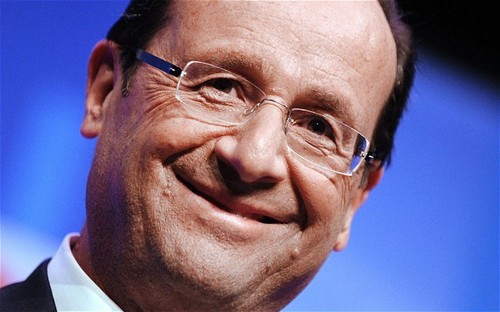
Francois Hollande’s 75% tax rate on millionaires was a central election platform
Zlatan Ibrahimovic’s transfer is complete. He is now a PSG player, a team he probably had no intention of joining when he launched his footballing career ten years ago. But the fact is he is now France’s richest paid athlete with an annual salary of €14m with only Cristiano Ronaldo and Leo Messi earning more. All paid through the deep pockets of the Qatar Investment Authority that has now dumped about €200m in transfer fees since its takeover in 2010 and shows no signs of slowing down.
Francois Hollande, the new French Prime Minister got elected partly on the promise that he would impose a 75% tax on all those earning more than €1m. This is a staggering 34% jump on the previous highest marginal rate of 41%. For comparison sake, the top rate in the USA is 35% which is already considered astronomical by almost all Republicans. In Europe, no country comes remotely comes close to the proposed French rate. In the UK, it is 45%, Belgium imposes 55%, and in Sweden, the wealthy pay 57%. But Hollande’s justification for this increase has little to do with generating revenue. In fact, it will not.
The larger idea is that it is a way of curbing the outrageous salaries that one has come to associate with hedge fund managers, bankers, and corporate lawyers. An allegory to the financial doping that is poisoning football. When Hollande first mooted his plan, it resonated with the French public weary of Nicholas Sarkozy’s bling bling culture. A reign which saw France go through the mayhem of a €544 billion stock market devaluation following Société Générale’s reported loss of €5b through a rogue trader.
Ibrahimovic’s salary has sparked a similar outrage in France. In fact, because of his high profile he maybe become a cause celebre in Hollande’s morality play. The Sports Minister, Valérie Fourneyron, has already called for a salary cap implementation as part of the financial fair play rules to stop what she called “abuses.”
“The sums are astronomical, irrational, the economic situation we are facing reminds us that this measure is more necessary than ever,” she said.
The Hollande government in a subsequent statement made it clear that the 75% tax rate applied to athletes too. In fact, Ibrahimovic’s wages would be a test case going forward. A spokeswoman, Najat Belkacem-Vallaud, opined, “Between ourselves, I think the income received by the player that you mention has shocked many people, so it seems natural that he can contribute to the collective effort.”
The concern is that these athletes as could high wage earners in other fields, drop France as their next destination. An anxiety mirrored in England a few years ago that the top tax bracket hitting 50% could drive talent away to low rate tax havens like the Liga. In part, clubs jacked up their wages to offset those tax increases.
Does this mean Ibrahimovic could be forced to part with €10m of his salary in taxes if Hollande does single him out?
No, not really. There are ways around as this article in Le Monde points out. He could be paid his wages fully or partly abroad and escape being a French tax resident. Of course, these could be litigated as part of bilateral tax treaties that go after such offenders. There are other less aggressive ways. Ibrahimovic having lived outside France for five years or more qualifies as an expatriate and comes under rules which could allow him a 30% exemption. Or he could avail of a quotient system loophole which averages the taxable income over a period of time and save on the yearly rate. Or the club could go to the least desirable route and the salary could skyrocket to €89m which would give Ibrahimovic exact change. This of course would raise all sorts of red flags that Michel Platini is raising with UEFA’s financial fair play rules.